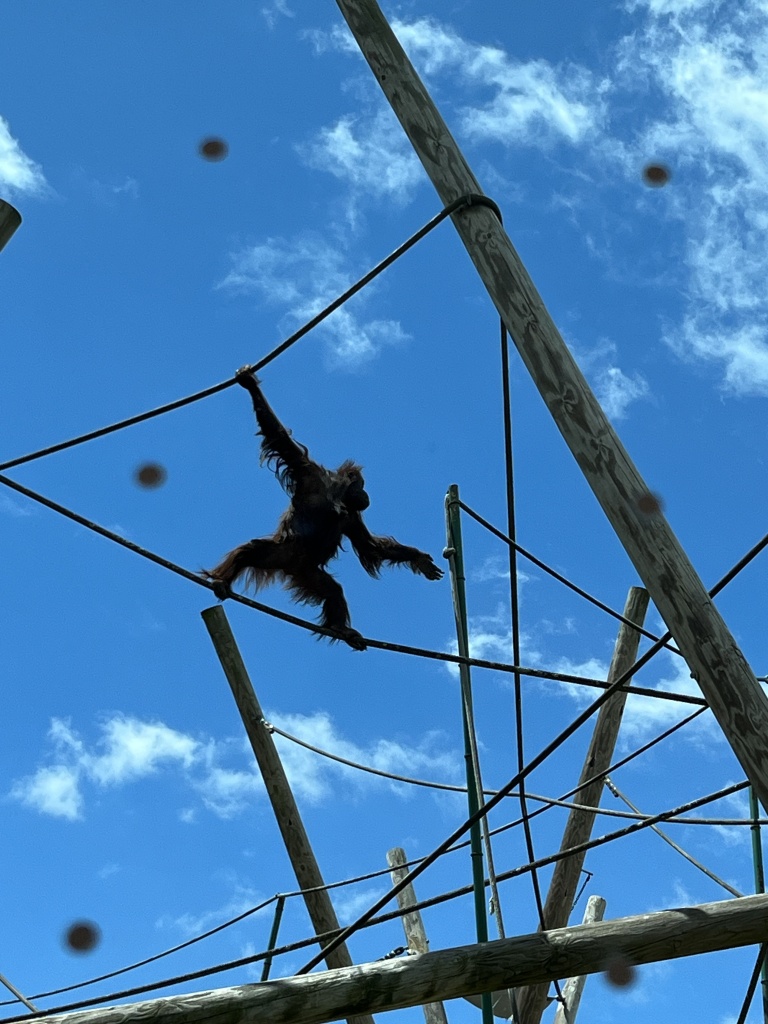Agility is a trait that is highly valued in many areas of life, including sports, business, and even in ministry. In a recent visit to the Virginia Zoo in Norfolk, my four-year-old witnessed the agility of an orangutan that climbed up the post and began swinging on the cords. While the agility of an orangutan may seem like an unlikely comparison to the agility needed in ministry, there are some interesting parallels to explore.

Let’s start by defining agility. In general, agility refers to the ability to move quickly and easily, adapt to changing circumstances, and respond to challenges flexiblefficientlyeasily. Orangutans’ agility is related to their physical abilities, such as climbing trees, swinging from branches, and moving quickly through dense foliage.
In ministry, leaders need to adapt to changing circumstances, respond to the needs of their congregations and communities, and navigate complex social and cultural contexts. It involves a delicate balance of climbing and swinging through denseness. Here are three (3) ways, like an orangutan, you can be agile in ministry.
Here are a few points to consider:
Adaptability
Both orangutans and ministry leaders need to adapt to changing circumstances. For orangutans, this may mean adapting to changes in their environment, such as the availability of food or the presence of predators. For ministry leaders, this may mean adapting to changes within the congregation, changes in the community demographics, or any other rapid change we experience. The COVID-19 pandemic taught us that adaptability is a core value for ministry leaders, because ministry is constantly evolving and changing. A tree branch that was there a year ago will likely not be there today. As an orangutan adapts, so must ministry leaders to new situations, challenges, and contexts. We must be flexible and open-minded, able to pivot our approach as needed to meet the needs of the congregation and community.
Problem-solving
Orangutans are known for their problem-solving abilities, such as using tools to access food or building nests for sleeping. Ministry leaders need to be skilled problem-solvers, able to find creative solutions to complex challenges. This often requires adaptability because the age-old, comfortable solutions of the past may not work anymore. Problem-solving is also essential because ministry is full of complex challenges, from addressing social justice issues to providing support for people in crisis. Ministry leaders must be able to think creatively and strategically, finding solutions that address the root causes of problems and bring about positive change.
Communication
From the outside looking in, it may seem like orangutans have limited communication abilities. While they are solitary, they are also social animals. They have a system for communication. Ministry leaders need to communicate effectively with a wide range of people. This is especially essential when communicating while adapting and problem-solving. Ministry leaders are communicating to a wide range of people, from those in the congregation to community leaders and beyond. Such communication requires more than having a well-written script. It includes being able to listen carefully and actively, speak clearly, understand the perspective of others, and build relationships based on trust and mutual respect. Without strong communication skills, ministry would be ineffective and unsustainable.
In Conclusion
Both orangutans and ministry leaders must adapt to changing circumstances, problem-solve, and communicate effectively. These three lessons in agility from orangutans point to a clear understanding of leadership. While the agility of an orangutan is mainly physical, the agility of a ministry leader will be mental, emotional, and spiritual. And it will often mean letting go of old models, “how we’ve always done it,” to discern a new way forward. Such leadership is not dependent on agility but on a deep commitment to serve others and a strong sense of purpose and calling.
Currently, orangutans are critically endangered. If you have a moment, consider giving to an organization like the World Wildlife Fund to help support conversation.
